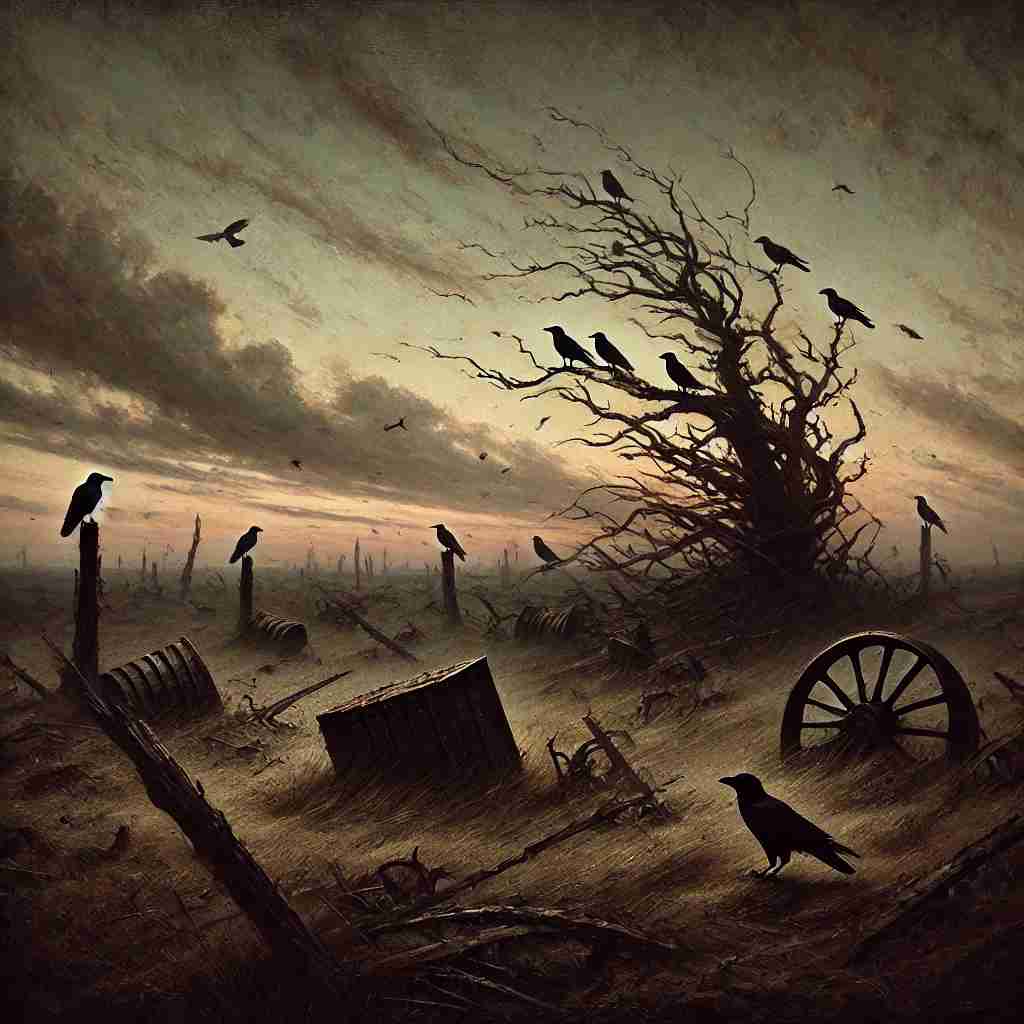3 Poems by Charles Sorley
1895 - 1915
Charles Sorley Biography
Charles Hamilton Sorley, a promising young poet whose life was cut tragically short by World War I, left an indelible mark on British literature despite his brief career. Born on May 19, 1895, in Aberdeen, Scotland, Sorley was the son of William Ritchie Sorley, a professor of moral philosophy, and Janet Smith Sorley. His early years were shaped by an intellectual environment that nurtured his precocious literary talents.
Sorley's formal education began at King's College School in Cambridge, where his father had taken up a professorship. Even in his youth, Sorley displayed a keen intellect and a passion for literature that set him apart from his peers. His academic prowess earned him a scholarship to Marlborough College in 1908, where he would spend his formative teenage years.
At Marlborough, Sorley's poetic voice began to emerge. The pastoral landscapes of Wiltshire, with its rolling downs and ancient monuments, provided rich inspiration for the young poet. It was here that Sorley first encountered the works of Thomas Hardy, whose influence would be evident in Sorley's own poetry, particularly in his attention to the natural world and his often somber reflections on the human condition.
Sorley's time at Marlborough was marked by intellectual growth and a burgeoning sense of independence. He developed a reputation for being both brilliant and unconventional, often challenging established ideas and expressing a skepticism that belied his years. This period also saw the beginning of his correspondence with Robert Graves, another poet who would go on to achieve great renown. Their letters offer valuable insights into Sorley's developing philosophy and poetic sensibilities.
In 1913, having won a scholarship to University College, Oxford, Sorley decided to spend a year in Germany before commencing his studies. This sojourn in Schwerin, Mecklenburg, proved to be a pivotal experience in his life and work. Sorley immersed himself in German culture and literature, developing a deep appreciation for the country and its people. His letters from this period reveal a young man grappling with complex ideas about nationalism, culture, and the growing tensions in Europe.
Sorley's time in Germany coincided with the rising political tensions that would soon erupt into World War I. He was forced to leave the country hastily in August 1914 as war broke out. This experience gave him a unique perspective on the conflict, one that would inform his later poetry. Unlike many of his contemporaries who initially greeted the war with patriotic fervor, Sorley's response was more measured and skeptical.
Upon returning to England, Sorley enlisted in the Suffolk Regiment, despite having the opportunity to take up his place at Oxford. His decision to join the army was not born of nationalistic zeal but rather a sense of duty and perhaps a desire to confront the realities of the conflict he had long anticipated. Sorley's wartime letters and poetry reflect a growing disillusionment with the war and a mature understanding of its futility that was rare among his peers.
Sorley's war poetry stands out for its lack of sentimentality and its clear-eyed assessment of the conflict. In poems like "When You See Millions of the Mouthless Dead" and "All the Hills and Vales Along," he eschews patriotic platitudes in favor of a more nuanced and often critical view of the war. His most famous poem, "Such, Such Is Death," written shortly before his own death, is a powerful meditation on mortality and the arbitrary nature of death in wartime.
Tragically, Sorley's promising career was cut short on October 13, 1915, when he was killed by a sniper's bullet during the Battle of Loos in France. He was just 20 years old. The majority of Sorley's poems were published posthumously, first appearing in "Marlborough and Other Poems" in 1916, edited by his parents. This collection, along with his letters, quickly established Sorley's reputation as one of the most significant voices of the war poets.
Sorley's work is notable for its maturity and distinctive voice. Despite his youth, he developed a style that was both sophisticated and accessible, marked by a clarity of expression and depth of thought that belied his years. His poetry often grapples with themes of death, nature, and the human experience, reflecting both his personal philosophy and the stark realities of war.
The influence of Sorley's German experiences is evident in his work, particularly in poems like "To Germany" which expresses a nuanced view of the enemy rarely found in wartime poetry. His ability to see beyond national divisions and recognize the common humanity on both sides of the conflict sets him apart from many of his contemporaries.
Sorley's legacy extends beyond his own poetry. His influence can be seen in the work of later war poets, and his letters provide valuable insights into the intellectual and emotional life of a young man coming of age in a time of global conflict. Scholars have noted the way in which Sorley's work anticipates the more cynical and disillusioned poetry that would emerge later in the war from poets like Wilfred Owen and Siegfried Sassoon.
In the years since his death, Sorley's reputation has continued to grow. He is now recognized as an important figure in the canon of World War I poetry, his work studied alongside that of Owen, Sassoon, and Rupert Brooke. The brevity of his career and the circumstances of his death have led some critics to speculate on what Sorley might have achieved had he lived longer, but such conjecture perhaps undervalues the significant body of work he produced in his short life.
Charles Sorley's poetry continues to resonate with readers today, offering a unique perspective on war, youth, and the human experience. His life, though brief, stands as a testament to the power of literature to capture the essence of an era and the enduring nature of the human spirit in the face of adversity. As we continue to grapple with issues of conflict and national identity, Sorley's thoughtful and nuanced voice remains as relevant and compelling as ever.
This text was generated by AI and is for reference only. Learn more
Username Information
No username is open
Unique usernames are free to use, but donations are always appreciated.
Quick Links
© 2024-2025 R.I.Chalmers (V2Melody).

All music on this site by R.I.Chalmers (V2Melody) is licensed under a Creative Commons Attribution-NonCommercial 4.0 International License.
Attribution Requirement:
When using this music, you must give appropriate credit by including the following statement (or equivalent) wherever the music is used or credited:
“Music by R.I.Chalmers (V2Melody) – https://v2melody.com”
Support My Work:
If you enjoy this music and would like to support future creations, donations are always welcome but never required.
Donate



